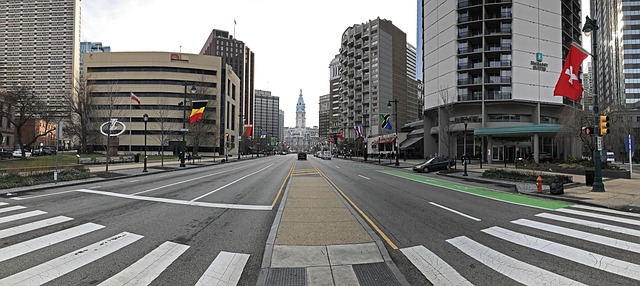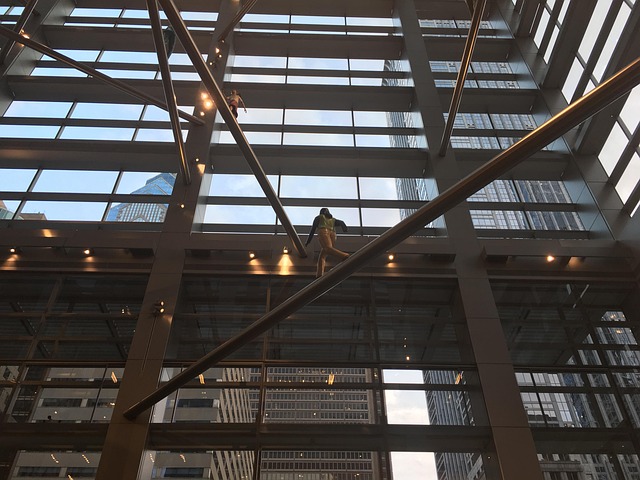In Pennsylvania, sexual abuse includes non-consensual acts against an individual's integrity, with specific laws like IDSI and sexual assault defined in the Criminal Code. A sexual abuse lawyer in Philadelphia assists victims aged 16 and above. Axe-throwing venues have a legal duty to prioritize safety, train staff, and implement monitoring systems. Venue owners must safeguard patrons through security measures to avoid civil lawsuits and criminal charges. Law enforcement and lawyers collaborate to prosecute sexual misconduct in Philadelphia. Survivors can access support services and legal guidance from specialized sexual abuse lawyers and local organizations.
“In Philadelphia, the thrill of axe-throwing venues has gained popularity, but an often-overlooked shadow looms: sexual abuse. This article delves into the legal aspects surrounding this critical issue in PA. We explore the definitions of sexual abuse, the responsibilities of axe-throwing businesses, and potential liability for venue owners. Understanding the role of law enforcement and lawyers is key to protecting survivors and providing legal recourse. If you’re a survivor or seeking justice, connecting with a sexual abuse lawyer in Philadelphia can offer much-needed support.”
Legal Definitions of Sexual Abuse in PA

In Pennsylvania, sexual abuse is defined as any non-consensual act that violates a person’s sexual integrity, including rape, sexual assault, and other forms of unwanted sexual contact. The legal age of consent in PA is 16 years old, meaning any sexual activity with an individual under this age is considered abusive and criminal. A sexual abuse lawyer in Philadelphia can help victims understand their legal rights and navigate the complex legal process.
The Pennsylvania Criminal Code outlines specific statutes related to sexual offenses, detailing the elements that constitute various crimes, such as involuntary deviate sexual intercourse (IDSI), sexual assault, and harassment. These definitions aim to protect individuals from non-consensual sexual acts, ensuring that perpetrators are held accountable for their actions. Understanding these legal terms is crucial when seeking justice and support as a victim of sexual abuse in Philadelphia.
Responsibilities of Axe-Throwing Businesses

Axe-throwing venues in Philadelphia, like any other business, have a legal obligation to ensure the safety and well-being of their patrons. This includes taking proactive measures to prevent and address sexual abuse within their establishments. A sexual abuse lawyer in Philadelphia, PA, would argue that these businesses are responsible for creating a safe environment free from harassment or assault.
This involves implementing clear policies against sexual misconduct, proper staff training, and effective monitoring systems. Venue owners must also be prepared to respond swiftly and appropriately if an incident occurs, providing support services and reporting mechanisms. By fulfilling these responsibilities, axe-throwing businesses can help maintain a positive atmosphere and protect their customers from potential harm, thereby mitigating legal risks associated with sexual abuse claims.
Potential Liability for Venue Owners

Venue owners in Philadelphia, PA, have a legal obligation to ensure the safety and well-being of their patrons, including protecting them from potential harm or abuse. In the context of axe-throwing venues, this means implementing robust security measures and establishing clear policies against any form of misconduct, especially sexual harassment or assault. A sexual abuse lawyer in Philadelphia can help venue owners understand and fulfill these responsibilities, which include:
Regular staff training on recognizing and responding to inappropriate behavior, as well as emergency protocols; installing high-quality surveillance systems to monitor activities; promoting a culture of respect and consent through clear communication and signage; and promptly reporting any suspected incidents to the appropriate authorities. Failure to do so could result in significant legal liabilities, including civil lawsuits for negligence and criminal charges for failing to protect individuals from sexual violence.
The Role of Law Enforcement and Lawyers

In the context of sexual abuse, law enforcement and lawyers play pivotal roles in Philadelphia, PA’s axe-throwing venues. When incidents of sexual misconduct occur within these establishments, trained professionals are essential for investigating and prosecuting cases. Law enforcement officers are first responders, gathering evidence and interviewing witnesses to build a comprehensive understanding of any alleged violations. Lawyers, specializing in sexual abuse cases, then take over to ensure justice is served. They navigate complex legal systems, providing guidance and representation to victims while holding accused individuals accountable under the law.
These professionals collaborate to protect the rights of survivors and prevent further harm. Law enforcement’s prompt action and thorough investigation lay the groundwork for lawyers to present strong cases in court. This coordinated effort underscores the importance of addressing sexual abuse within the unique environment of axe-throwing venues, ensuring that legal responsibilities are met and victims receive the justice they deserve.
Protecting Survivors: Legal Recourse & Support

In cases of sexual abuse, survivors in Philadelphia, PA, have legal recourse available to them. If you’ve experienced sexual harassment or assault within an axe-throwing venue or any other public space, a sexual abuse lawyer in Philadelphia can guide you through the process of seeking justice and compensation. They can help you navigate complex legal systems and ensure your rights are protected.
Support services are also crucial for survivors’ well-being. Local organizations dedicated to fighting sexual violence offer resources such as counseling, legal aid, and advocacy. These services aim to empower survivors, provide a safe space, and facilitate their journey towards healing and recovery. Remember, seeking help is not just about legal redress; it’s about accessing the support needed to rebuild lives after traumatic experiences.




